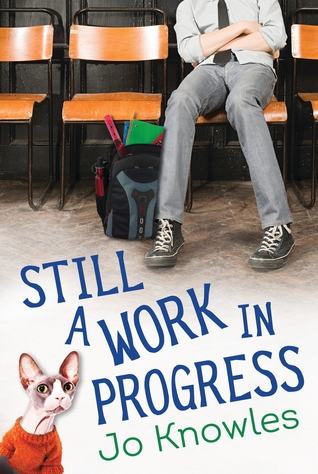~~~~~~~~~~~~~~~~~~~~~~~~~~~~~~~~~~~~~~~~~~~~~~~~~~~~~~~~~~~~~~~~~~~~~~~~~~~
Noah is just trying to make it through seventh grade. The girls are confusing, the homework is boring, and even his friends are starting to bug him. Not to mention that his older sister, Emma, has been acting pretty strange, even though Noah thought she’d been doing better ever since the Thing They Don’t Talk About. The only place he really feels at peace is in art class, with a block of clay in his hands. As it becomes clear through Emma’s ever-stricter food rules and regulations that she’s not really doing better at all, the normal seventh-grade year Noah was hoping for begins to seem pretty unattainable. In an affecting and realistic novel with bright spots of humor, Jo Knowles captures the complexities of navigating middle school while feeling helpless in the face of a family crisis.
(Release Date August 2, 2016)
I feel terrible that I'm not even going to read this, after the folks over at Candlewick Press were awesome enough to send me an ARC when I asked them for one. I still think it looks really interesting - I haven't read many books about people with eating disorders, let alone about the siblings of people with them! - but my mother said that the book is split about halfway between focusing on Noah's sister's eating problems (which she said was really interesting to read about) and focusing on his school life (i.e. his girl-crazy best friends and unsupportive teachers, which she didn't like at all).
It sounds like my mom did really like the eating disorder storyline, but thought the book was ruined by the middle-school romance angle; if you're intrigued by the scenario and not turned off by middle-school romance, then you could still like Still a Work in Progress.
Disclaimer: ARC received from Candlewick Press
~~~~~~~~~~~~~~~~~~~~~~~~~~~~~~~~~~~~~~~~~~~~~~~~~~~~~~~~~~~~~~~~~~~~~~~~~~~
 |
| Click to view on Goodreads |
In Canaan, your book is your truth and your identity, and Nadia knows exactly who hasn't written the truth. Because Nadia is the only person in Canaan who has never forgotten.
But when Nadia begins to use her memories to solve the mysteries of Canaan, she discovers truths about herself and Gray, the handsome glassblower, that will change her world forever. As the anarchy of the Forgetting approaches, Nadia and Gray must stop an unseen enemy that threatens both their city and their own existence – before the people can forget the truth. And before Gray can forget her.
(Release Date September 13)
Disclaimer: ARC received from Scholastic
~~~~~~~~~~~~~~~~~~~~~~~~~~~~~~~~~~~~~~~~~~~~~~~~~~~~~~~~~~~~~~~~~~~~~~~~~~~
What do you think, am I right for passing these books by or just evil for wasting perfectly good ARCs? Let me know in the comments section below!







